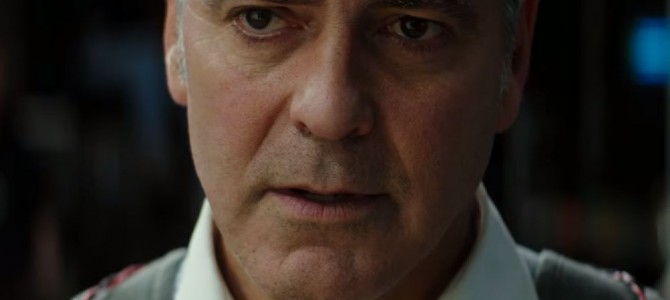
Stars: they’re just like us! Just like the drunk girl at the end of a wedding, Julia Roberts walked around Cannes barefoot last week for the premier her new movie, “Money Monster.” Roberts and costar George Clooney are just like us in another way as well: They kind of hate rich people, and now they’ve made a movie about it. Problem is, they are two of the richest people in Hollywood.
The premise of their latest movie is this: Lee Gates (played by Clooney) is a business television star who has a fast-paced and popular show about the stock market and financial sector. Based on a bad tip from him, viewer Kyle Budwell invested and lost his entire savings. Budwell arrives on the set of Gates’ show to get answers and take revenge with a bomb strapped to his chest and a gun in his hand.
Roberts’ character, Clooney’s producer, helps unravel the mystery of the computer glitch that robbed Budwell of his life savings before it’s too late. It’s a classic thriller, with capitalism substituted for the role of the bad guy instead of the actual bad guy: the one with the bomb and a gun pointed at another man’s head.
How Fresh! Hating Wall Street
In its review of the film Rolling Stone writes, “Hating on Wall Street is the new national pastime. And Jodie Foster, in her fourth film as a director, goes for the burn… Foster’s subject isn’t just the corrupt financial system but the human beings getting mangled in its gears.”
Nothing says entertainment quite like a thriller about the evils of the financial sector. Where do I sign up? What I find most entertaining, however, is the folks doing the acting in the film.
Budwell is upset about the loss of his entire life savings: $60,000. That’s a heck of a lot of money to the average American, but a drop in the bucket for Clooney, Roberts, and Foster, who are worth $180 million, $140 million, and $100 million, respectively.
In a starring role in a film, Clooney and Roberts often earn in excess of $10 million each, and in a recent supporting role in the film “Mother’s Day” Roberts earned $3 million. The value of the clothing the stars in that movie wore in Cannes alone was likely around $60,000, if not more when shoes, jewelry, and handbags are taken into account.
A more interesting takedown of a corrupt, wildly influential and wealthy institution would have been much more up Clooney, Roberts, and Foster’s alley, and much more familiar turf. Few know better than these stars how much power and money lies in the hands of celebrities and the studios who employ them. Perhaps since that’s such a tired, worn-out story line they instead chose to target Wall Street, an entirely new genre in the movie industry recently.
Hate the Hand that Feeds You
Clooney has done this before. In 2013, he starred in a movie you’ve likely never heard of, to preach about another liberal pet issue: global warming. “Tomorrowland” bombed at the box office. A few years later, Clooney added to his already enormous carbon footprint by flying all of his nearest and dearest to Italy for his wedding to Amal Alamuddin. Do what I say, not what I do.
Like “Tomorrowland,” “Money Monster’s” earnings are quite modest as blockbuster studio films go, raking in $15 million during its opening weekend. Despite being subjected to commercials about the movie for several months, Americans weirdly don’t seem interested in spending $13 a ticket to watch wealthy people villainize how other wealthy people make their living.
If I wanted to be lectured about the evils of making money, I could go to a Bernie Sanders rally for free. Everyone can’t be paid millions to play the role of the prostitute next door just looking for love with a John.
Judging by the film’s box-office success, it seems regular Americans don’t take kindly to rich Hollywood stars asking us to pay for the privilege of being entertained while subjecting themselves to shaming on the latest liberal boogeyman. Making a living off of making Americans exert such cognitive dissonance is harder than it looks. It’s not easy to indict capitalism, even as a form of entertainment, when you’re the beneficiary of the very thing you’re railing against.









